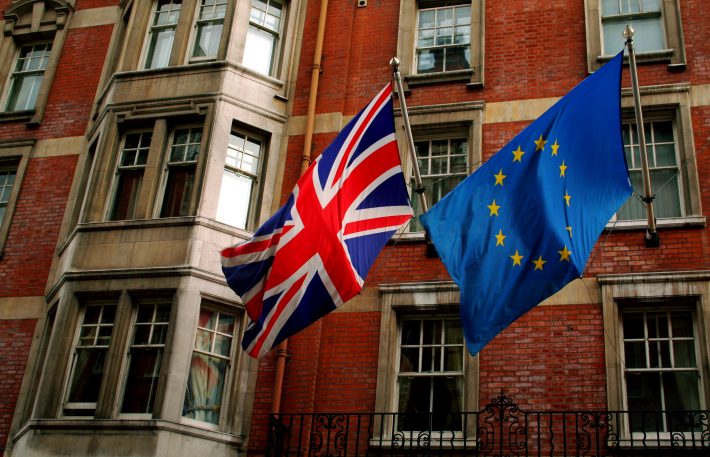A Policy Lunchbox discussion on “Brexit: what is happening inside Government?”
Oliver Ilott from the Institute for Government joined our November Policy Lunchbox session to explain the steps Government is taking in response to the decision to leave the EU.


It was a fascinating and very clear breakdown of the formation of the new Department for Exiting the European Union (DExEU), its interactions with existing Government Departments, the formation of the new Cabinet EU Exit and Trade Committee as well as the House of Commons Exiting the European Union Select Committee.
The three Brexiteers
The three departments involved in Brexit are the Foreign & Commonwealth Office (FCO), the Department for Exiting the European Union (DExEU) and the Department of International Trade (DIT). The busiest Department at the moment and the one that potentially has the most relevance for those working in science policy is DExEU. This Department is responsible for overseeing negotiations to leave the EU and establishing the future relationship between the UK and the remaining 27 Member States. We also learnt that DExEU, as a small coordinating body, is working with all other Government Departments and drawing on their expertise to help inform negotiations. However, it is unclear as to whether DExEU will involve those experts in the actual negotiations with the European Commission. The Department of International Trade (DIT) will become very busy in a few years’ time when we know more about what trade agreements we will actually be negotiating, so for now the focus mainly lies with DExEU.
Resourcing
Resourcing was another area we discussed since we heard that DExEU will remain a relatively small Department who will coordinate with and draw upon the expertise and resources of other Departments. Yet, what is going to happen to those other Departments who have already had to shrink in size (and therefore one assumes in skills and knowledge) and who are expected to make even more cuts over the next few years? Taking Defra as an example – the civil service has already shrunk by 18%[i] compared with six years ago and in the next four years Defra is expected to reduce its budget by a further 25%[ii]. How are they going to maintain current responsibilities while fulfilling the extra demands from DExEU? Perhaps it will become more apparent when the Autumn Statement is published and the resourcing of the Departments is clearer.
Cabinet Committees
Lastly, we heard about the reshuffle of the Cabinet’s sub-committees and taskforce groups and in particular, the formation of the new European Union Exit and Trade Committee and Sub-Committee. It took some time for the membership of the Committee to be announced but it’s now known the Committee is formed of 6 Ministers who campaigned in favour of leaving the EU and 6 who were in favour of staying, with the Prime Minister making up the 13th member.
After Oliver Ilott’s presentation the Policy Lunchbox attendees had the opportunity to ask questions and to shape an interesting discussion. A noteworthy message to come through (and one not being widely discussed) is that history has taught us that Governments can become a more porous to evidence and policy suggestions when it is under pressure. Hence with Brexit, we all have the opportunity to engage with the Department for Exiting the European Union (DExEU) as well as the experts from Departments informing DExEU. Finally, look out for select committee inquiries and in particular that of the House of Commons Exiting the European Union Select Committee, as inputting to Select Committees provides a real opportunity to inform negotiations and future policy formation.
For a similar online presentation of Oliver Ilott’s – see The Mechanics of Brexit presented at the Science Conference.
If you have any questions about Policy Lunchbox please do not hesitate to get in touch with Camilla and we are always keen to hear from our members so please do email if you have any questions or opinions about the information within this blog.
[i] http://www.instituteforgovernment.org.uk/blog/civil-service-18-smaller-2010-now-what
[ii] http://www.bbc.co.uk/news/uk-politics-34790102
Like what we stand for?
Support our mission and help develop the next generation of ecologists by donating to the British Ecological Society.